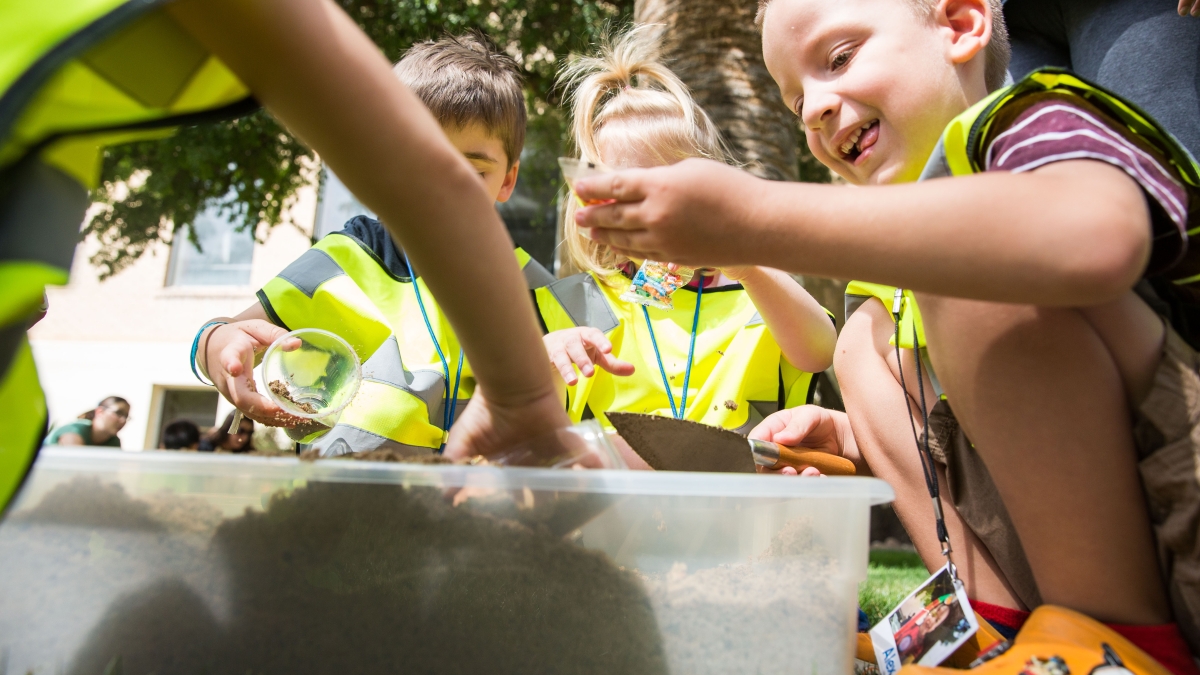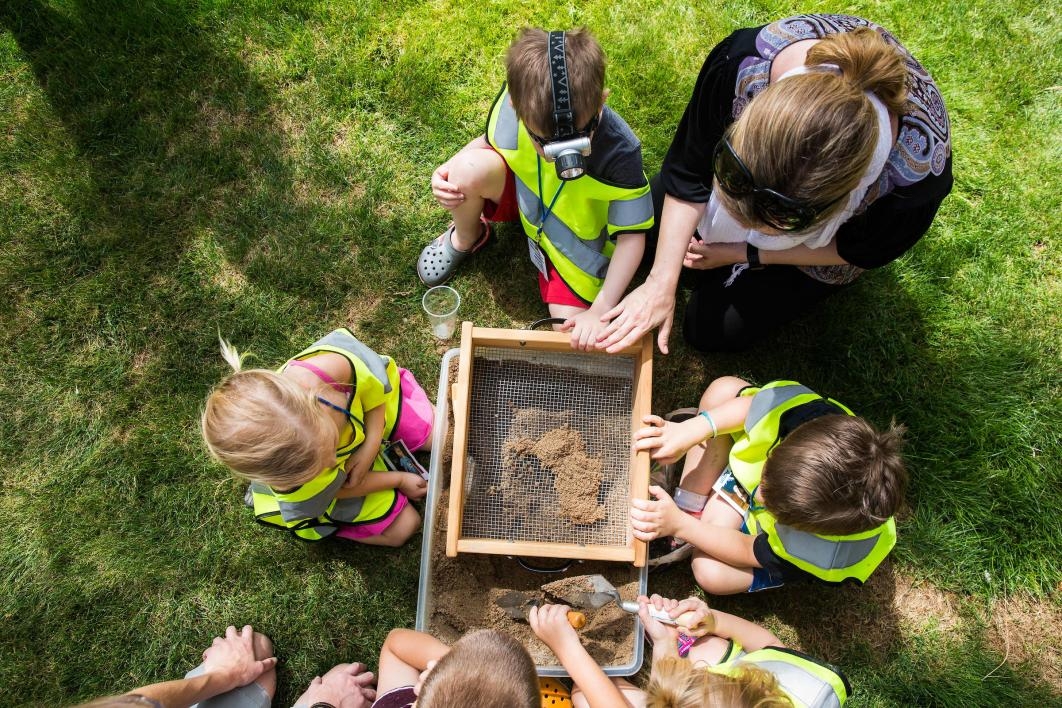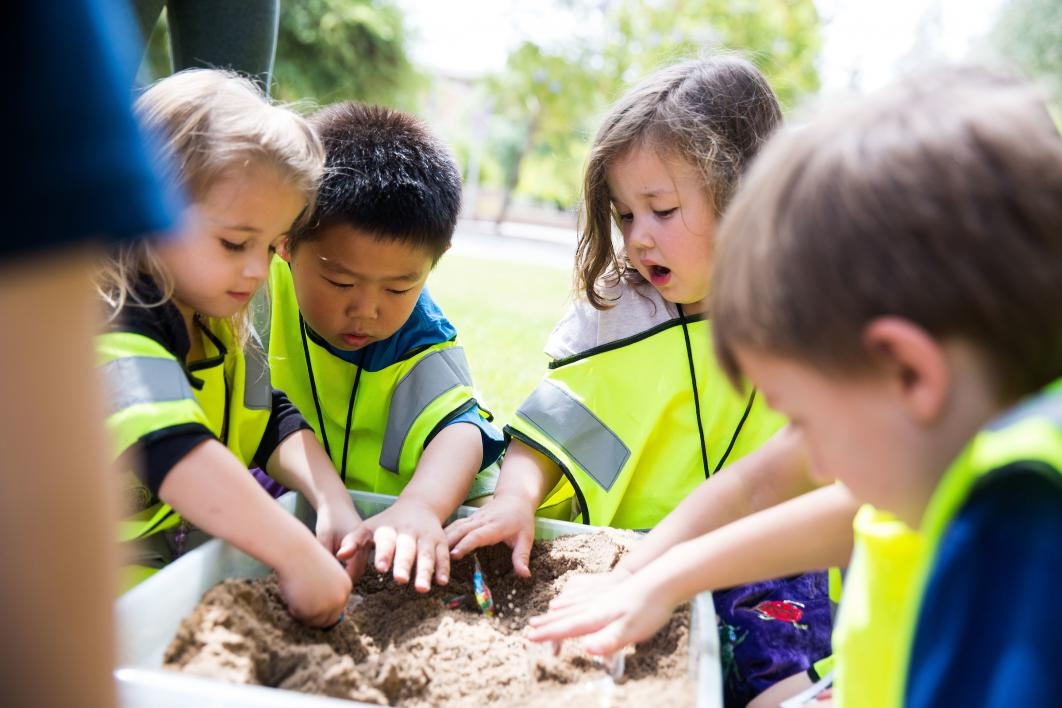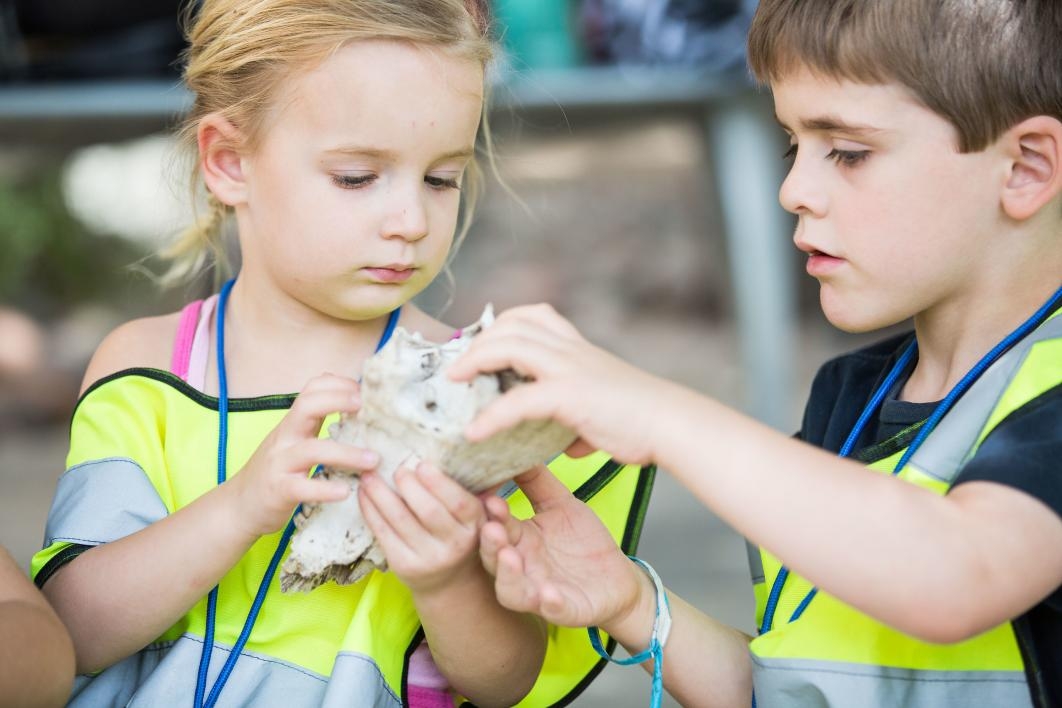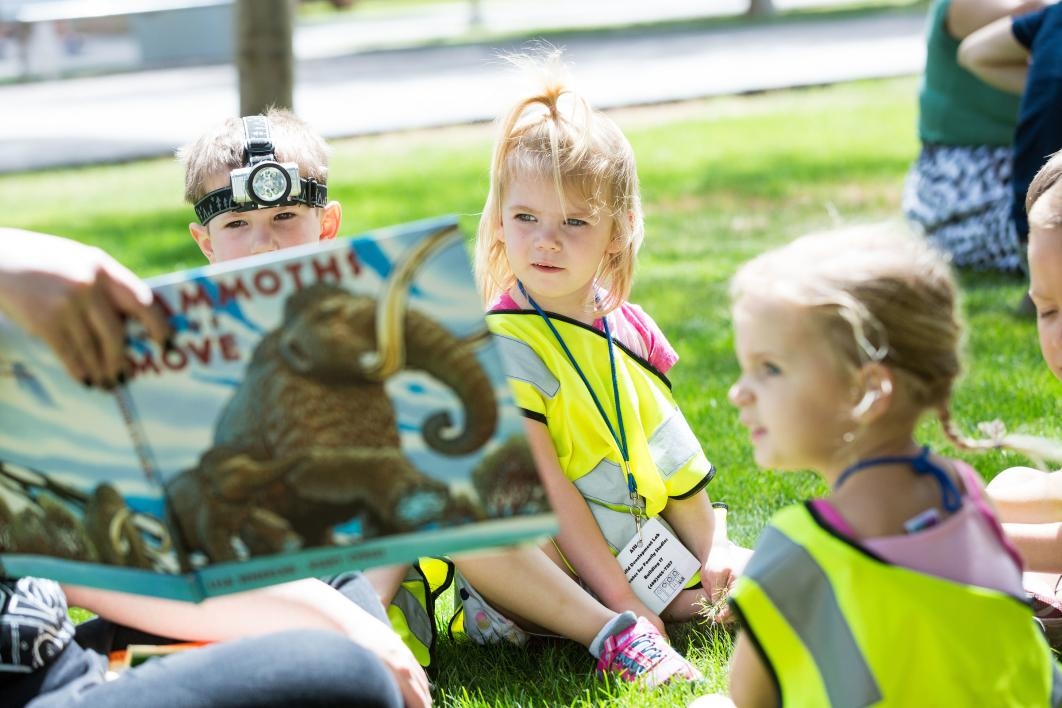In an effort to get young kids excited about the field of archaeology, Arizona State University held its first-ever mock excavation exercise Monday on the front lawn of the School of Human Evolution and Social Change building on the Tempe campus.
Preschoolers from ASU’s Child Development Laboratory had the chance to feel different types of animal bones and listen to a book about woolly mammoths, in addition to everyone's favorite activity — digging through sand to search for bags of bone-shaped candy.
"I think the kids loved digging and exploring," said Kelly KnudsonKnudson is also an associate professor in the School of Human Evolution and Social Change., director of the ASU Center for Bioarchaeological Research. "At this age, they don't already know if they like science or not. Getting them to understand at such an early age what science is will help create more leaders in the science community and teach them that science can be fun."
A handful of student volunteers were also on hand to assist in everything from shuttling kids to the site of the dig to explaining what bones belong to which kind of animals.
"I think getting to do hands-on things with kids like this is exciting," said bioarchaeology graduate student Sofia Pacheco-Fores. "A lot of the time we'll take them on lab tours to show them what we're doing, but that's kind of abstract. Doing a fake dig or mock excavation is more real to them."
The excitement was visible all morning. Smiles crossed the preschoolers faces as they dug with both hands and trowels in search of a tasty treat, and the sound of laughter filled the air as they learned about prehistoric beasts.
For preschooler Mathias Knudson-Krantz, the opportunity to take home a bag of sugar made the day memorable.
"I love excavating for candy," he said through a wide grin.
More Science and technology

Cracking the code of online computer science clubs
Experts believe that involvement in college clubs and organizations increases student retention and helps learners build valuable social relationships. There are tons of such clubs on ASU's campuses…
Consortium for Science, Policy & Outcomes celebrates 25 years
For Arizona State University's Consortium for Science, Policy & Outcomes (CSPO), recognizing the past is just as important as designing the future. The consortium marked 25 years in Washington, D…

Hacking satellites to fix our oceans and shoot for the stars
By Preesha KumarFrom memory foam mattresses to the camera and GPS navigation on our phones, technology that was developed for space applications enhances our everyday lives on Earth. In fact, Chris…
